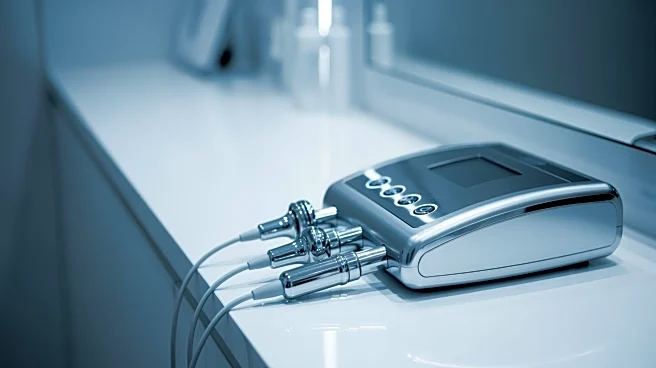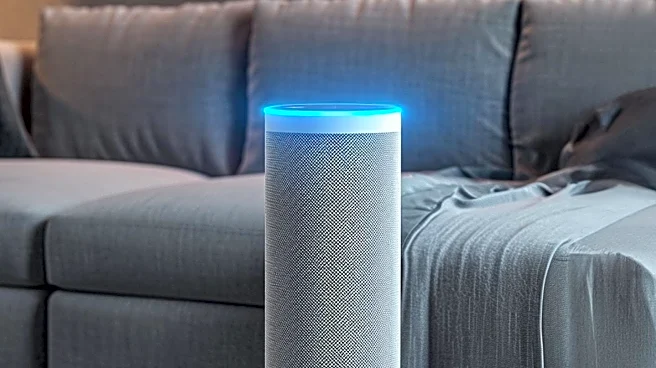What is the story about?
What's Happening?
Eisai and Biogen have received FDA approval for a subcutaneous injection version of their Alzheimer's drug, Leqembi, which can be administered at home. This new format allows patients to switch from intravenous infusions to weekly injections after an initial 18-month period of clinic-based treatment. The approval aims to enhance patient convenience and potentially increase the drug's market uptake. Leqembi, an anti-amyloid therapy, competes with Eli Lilly's Kisunla, which has been gaining market traction due to its different treatment protocol. The new at-home option for Leqembi is set to launch on October 6, 2025.
Why It's Important?
The approval of an at-home administration option for Leqembi could significantly impact the Alzheimer's treatment landscape by offering more flexibility and reducing the burden of frequent clinic visits for patients. This development may enhance the competitive position of Eisai and Biogen against Eli Lilly's Kisunla, which has been favored for its less frequent dosing schedule. The ability to administer the drug at home could lead to increased adherence to treatment regimens, potentially improving patient outcomes. Additionally, this move reflects a broader trend in healthcare towards more patient-centered and convenient treatment options.
What's Next?
With the launch of the at-home version of Leqembi scheduled for October 6, 2025, Eisai and Biogen are likely to focus on marketing strategies to promote this new option to healthcare providers and patients. The companies may also monitor the market response and gather data on patient adherence and outcomes to further support the benefits of the subcutaneous injection format. Meanwhile, Eli Lilly may respond by emphasizing the advantages of Kisunla's treatment protocol or by seeking similar innovations to maintain its competitive edge.
















